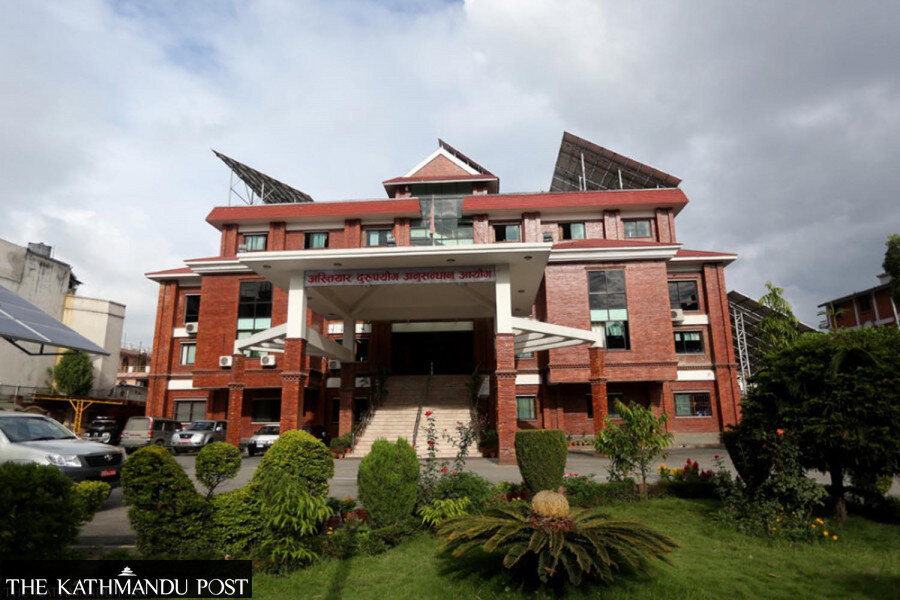National
Bill aims to bring Cabinet decisions under CIAA’s watch
New legislation seeks to plug a legal loophole that has allowed politicians to escape corruption investigations.
Purushottam Poudel
Amid allegations that politicians have used the Council of Ministers’ decisions to avoid scrutiny by the Commission for Investigation of Abuse of Authority (CIAA), demands have grown that these decisions be brought under the purview of the constitutional anti-graft body.
The agency has long been barred from investigating the Cabinet’s “policy decisions” under the Commission for Investigation of Abuse of Authority Act-1991. The lack of a clear distinction between “policy” and “non-policy” decisions has allowed this loophole to persist.
However, this ambiguity could be removed if the parliamentary State Affairs and Good Governance Committee (and then the House of Representatives) endorses a new bill prepared by its subcommittee.
The subcommittee passed the bill to “make third amendment to the CIAA Act” on Tuesday, which seeks to narrow this loophole by clearly defining which decisions qualify as policy decisions.
If passed by Parliament, the CIAA would be able to investigate Cabinet decisions that do not fall under the category of policy decisions.
Decisions made to benefit a specific person or private organisation that are not equally applicable to the general public and are contrary to the publicly announced policies, cannot be considered policy decisions, according to the new bill.
“Usually, a bill passed by the sub-committee gets endorsed as it also tends to be subsequently cleared by the main committee and then the House,” said the sub-committee chair Hridayaram Thani. “While submitting the bill to the committee chair today [Wednesday], I urged him to play a decisive role in ensuring its passage by the full committee.”
Ramhari Khatiwada, chair of State Affairs and Good Governance Committee, expressed confidence in the bill’s progress. Both Khatiwada and Thani are from the ruling Nepali Congress.
“As the subcommittee represented almost all political parties, there is no reason for the committee to reject it,” Khatiwada said.
However, Khatiwada added that the committee reserves the right to discuss and revise the bill before endorsing it.
Khatiwada said the amended bill does not state that all decisions made by the Council of Ministers are non-policy decisions.
“But I think if the Cabinet makes a decision that could otherwise have been made by an individual minister, such a decision might still qualify as a policy decision and be beyond the CIAA’s purview,” he added.
Previously, the CIAA could not investigate any Council of Ministers’ decisions, leading to a growing tendency for decisions—even those typically handled by ministries and other government agencies—to be forwarded to the Cabinet to evade CIAA scrutiny.
Section 4 (B) of the CIAA Act states: “The Commission, under the Act-1991, shall not take any action in matters relating to any business or decisions taken at meetings of any house of Parliament or any committee or anything said or done by any member at such meetings or any policy decisions taken by the council of ministers or any committee thereof or judicial actions of a court of law.”
Citing the same provision, the anti-graft body decided to exempt two former prime ministers—Baburam Bhattarai and Madhav Kumar Nepal—from prosecution in the Lalita Niwas land scam, fuelling suspicions that this provision was being misused to shield top politicians.
Last December, the CIAA had publicly decried the tendency of governments at all levels to exploit the “policy decision” exemption to bypass scrutiny. In its 46-point suggestion to the government, the CIAA called for an end to this practice.
If the proposed amendment is passed, it could regulate Cabinet decisions more effectively and close a significant loophole in the fight against corruption, said Thani, the subcommittee chair.




 17.12°C Kathmandu
17.12°C Kathmandu














